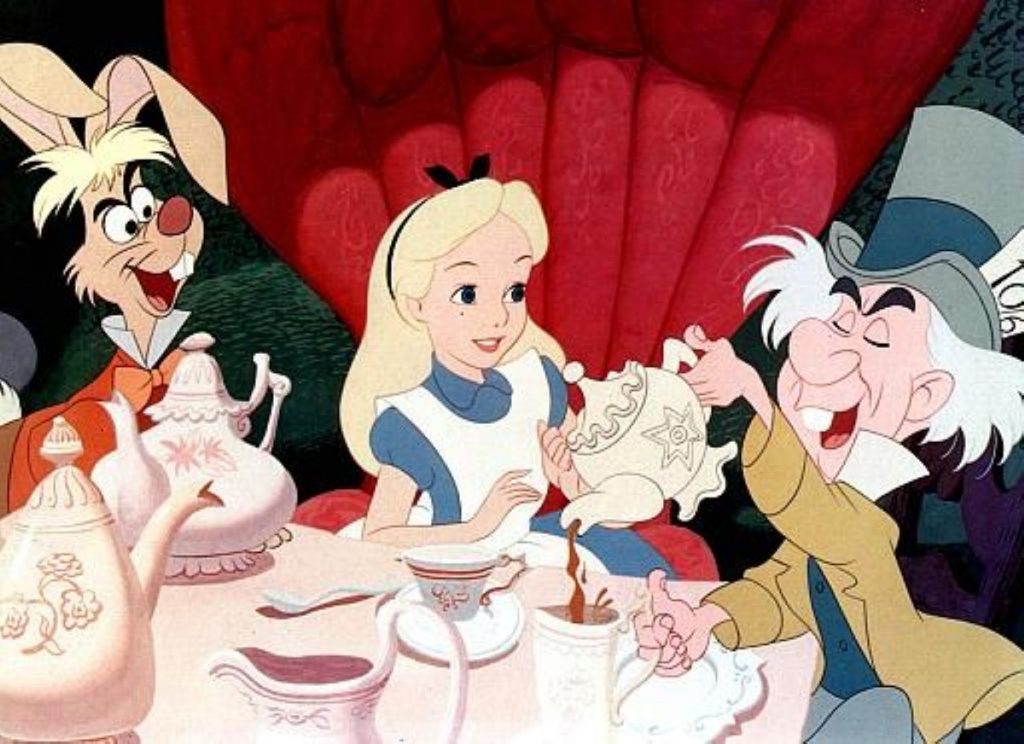Through the looking glass: Lord deploys Humpty-Dumpty argument to defeat gay marriage
The House of Lords was the scene of a uniquely strange speech today, after Lord Dear quoted extensively from Alice's Adventures in Wonderland in a bid to defeat gay marriage.
The Lord, who is taking the lead in trying to kill off the bill with a 'fatal motion' denying it a second reading, said the text highlighted the inappropriate use of language which was found in the gay marriage debate.
"'When I use a word,' Humpty Dumpty said, in rather a scornful tone, 'it means just what I choose it to mean'," he quoted to the packed Chamber.
"Heedless of public opinion and blind to laws of unintended consequences, [the bill] seeks to alter totally the concept of marriage as we've always understood it," he continued.


"It seeks to divide a nation with argument that hides behind concept of equality, when it is about sameness."
The lord said pushing ahead with gay marriage could anger heterosexuals and lead to the types of riots seen on the streets of France.
"There must come a point when, provided full equality for all under the law is guaranteed, the majority view should prevail, especially when the minority is tiny," he said.
"The present danger of redefining marriage could well turn out to be counterproductive because tolerance can be overstretched."
I contend this bill is in a mess – ill thought-through, lacking support in the population as a whole and likely to antagonise and enflame public opinion," Dear added.
"It's like wandering into the dark blindfolded."
Votes against a bill at second reading are uncommon by not unknown. Even if Dear's effort succeeded, the bill would almost certainly be forced through by the Commons using the Parliament Act.
The lively debate comes as bishops in the Lords find themselves coming in for special scrutiny over how they will vote.
"The elected house of parliament supports this by a majority of two to one," warned Iain McLean, professor of politics at Oxford University, in a piece which suggested the vote could have far-reaching principles for the established Church.
"The people support it by a stable majority. Although religious people are less supportive than non-religious people, Anglicans are close to evenly divided.
"The unelected house needs to move very cautiously in the face of these figures."
He added: "Opposition to the will of the Commons imperils the future right of bishops to sit in the legislature.
"If the bishops, or their convener, support the Dear motion, it is extremely likely that a proposal to remove them from the legislature will be in both the Labour and the Liberal Democrat general election manifestos for 2015."
Other religious sources are worried the Dear motion could imperil the Church's ability to secure more safeguards for conscientious objectors, because the report stage of the bill would be cancelled.
Speaking in the Lords during the debate, Archbishop of Canterbury Justine Welby said: "'With much regret but entire conviction, I cannot support the bill as it stands."
He added: "The Church has not always treated LGBT people as it should. I must express my sadness for that failure."
Reports in the Daily Telegraph suggest senior church officials have asked bishops to stay away from the debate.
Church leaders are afraid of the political reaction if a handful of bishops end up having the deciding vote, especially amid continued debate over the role of the church in the second chamber and anger over the failed attempt to pursue House of Lords reform.
Meanwhile, 30 independent church leaders, including many from 'black majority' churches, handed in a letter to Lambeth Palace demanding the bishops stand up for religious voters and block the gay marriage bill.
"For the sake of society, we provide an alternative perspective to society," the letter reads.
"We therefore implore you to seize this opportunity to speak boldly and clearly at a critical juncture in the life of our nation, to vote against this bill and to urge all other Anglican bishops in the House of Lords to do the same.
"We recognise that this represents a defining point in the future direction of the established Church and you can of course be assured of our prayers as you act courageously."
A group of senior Conservatives from the Thatcher and Major eras meanwhile put pressure on Tory peers to back the government bill.
Six former ministers signed a letter to the Times saying: "It would be wrong to hinder a measure whose time has come."
Peers will only vote on the bill on Tuesday.
They were originally set to vote tonight, but it was postponed amid fears opponents of the bill would stay on until the early hours in a marathon bid to kill it off while its supporters went to bed.
A total of 26 bishops sit in the Lords, although their numbers have been reduced by the absence of the Archbishop of York, John Sentamu, who is recovering from a cancer operation, and the see of Durham, which was left absent when Archbishop Welby was promoted.
A spokesman for the Church of England said: "The bishops in the House of Lords do not have a party whip, they do not vote according to a party line.
"Each will vote according to their own conscience."












